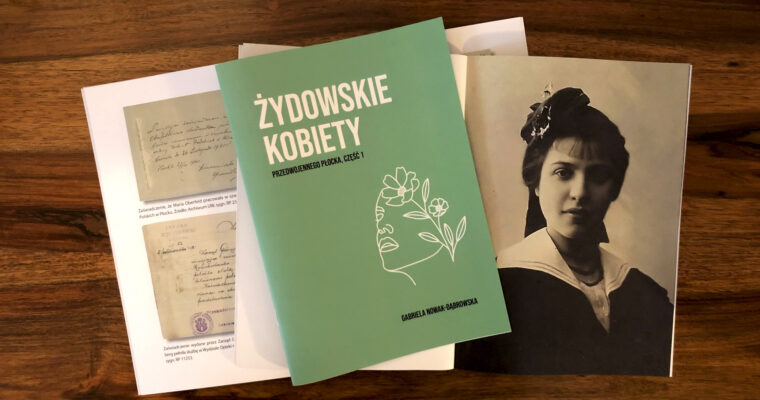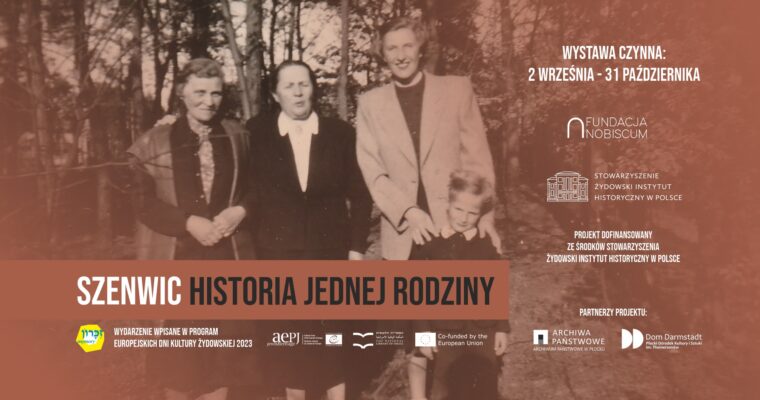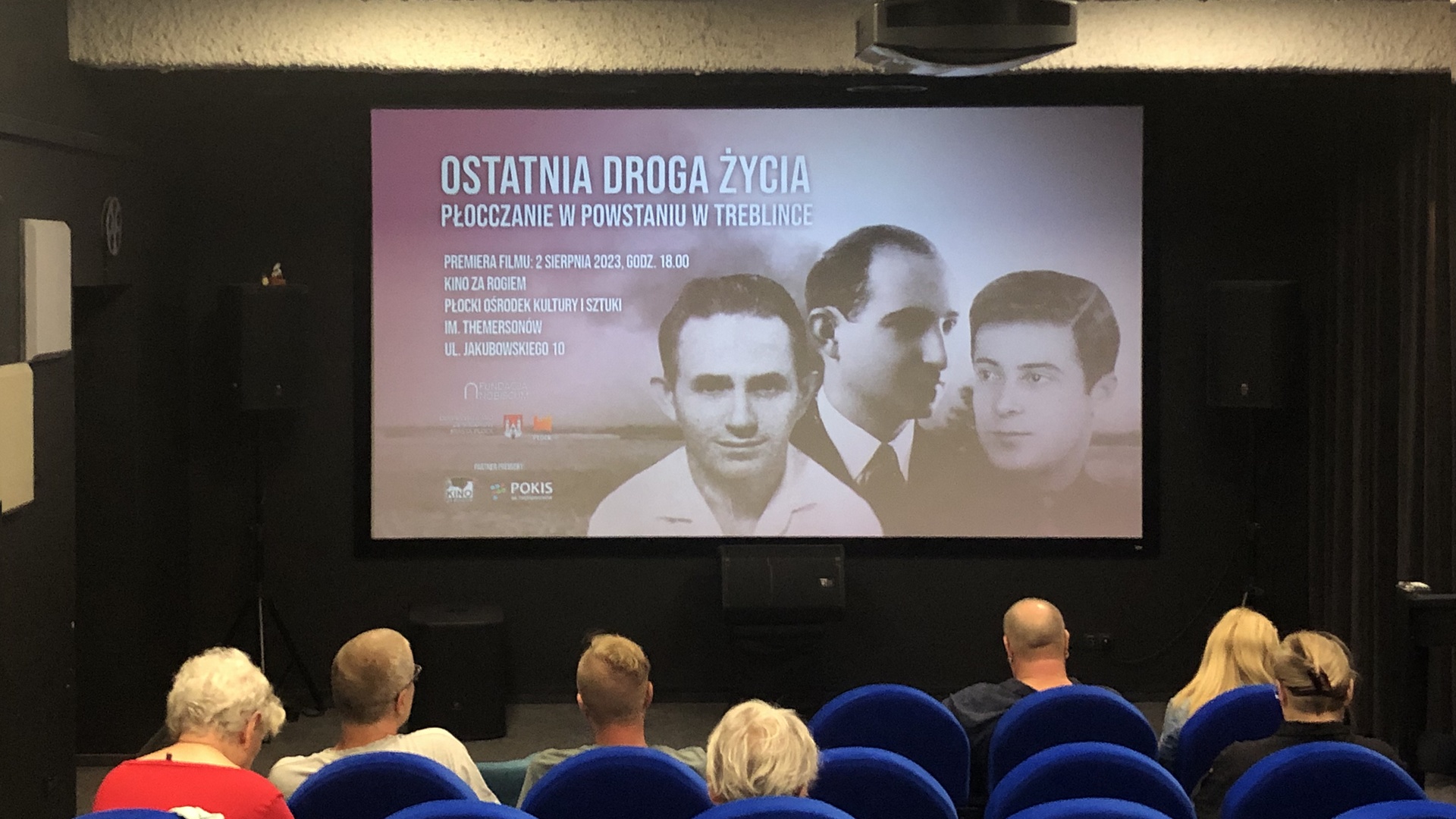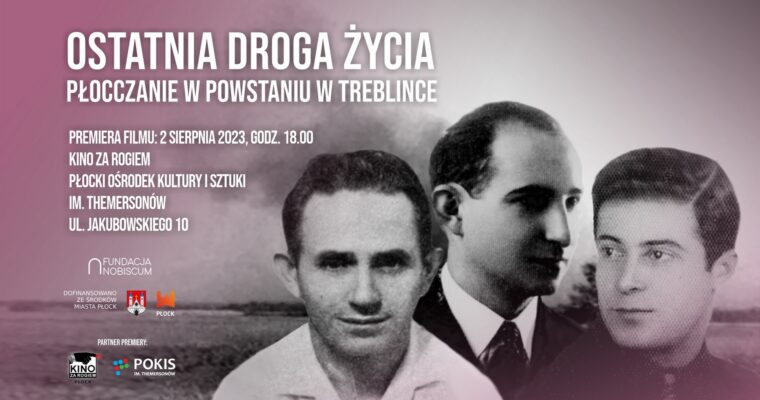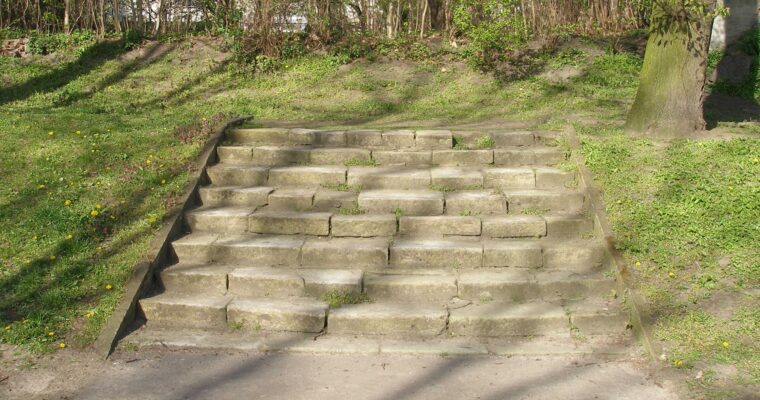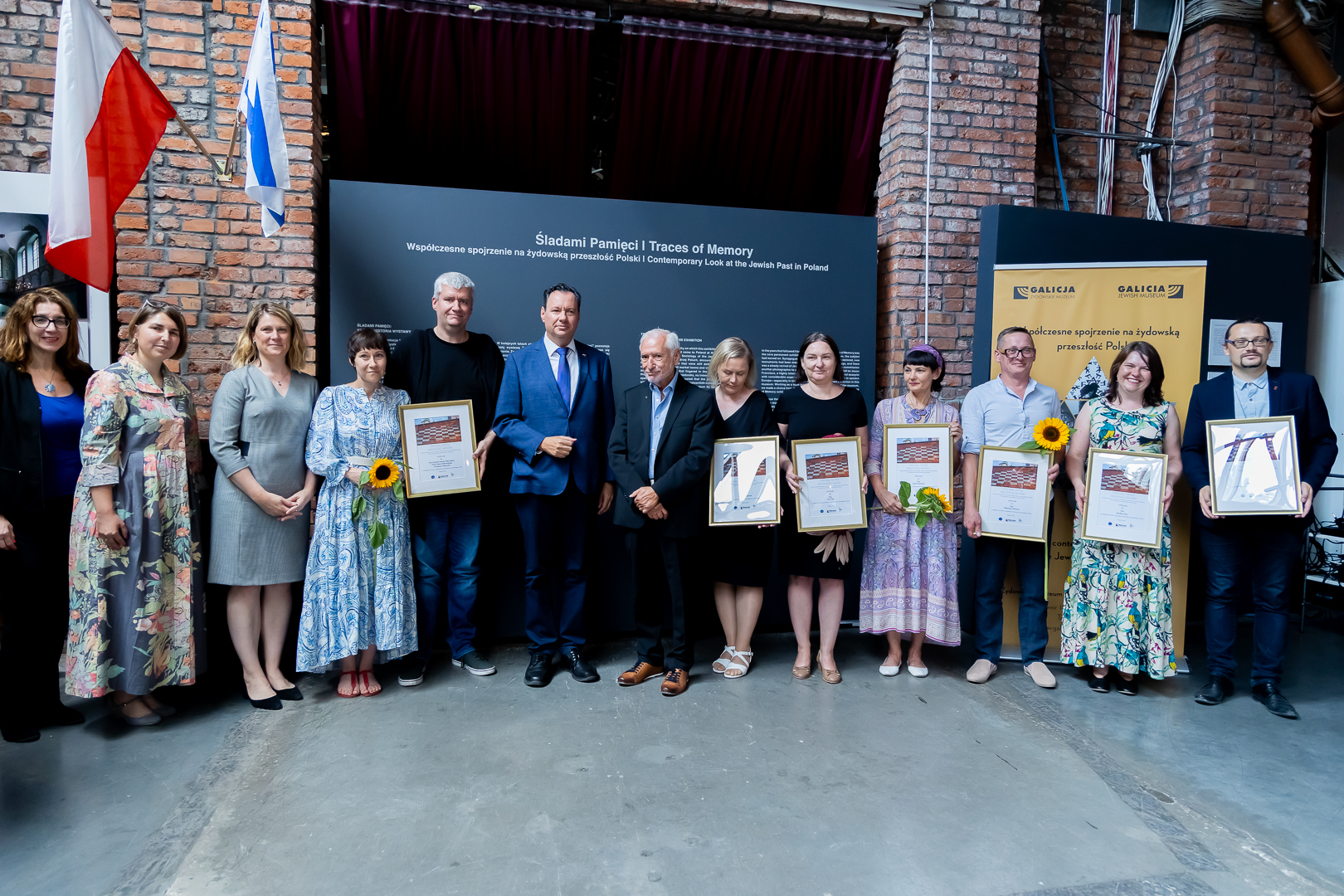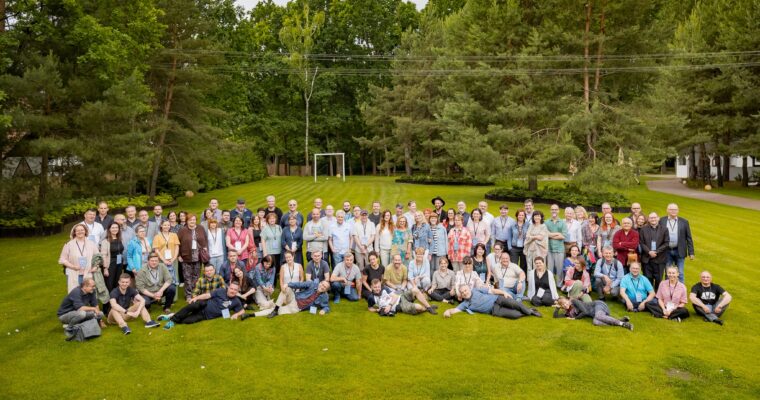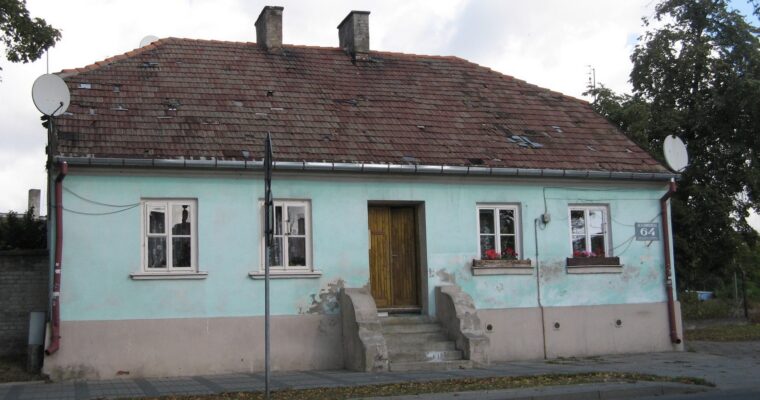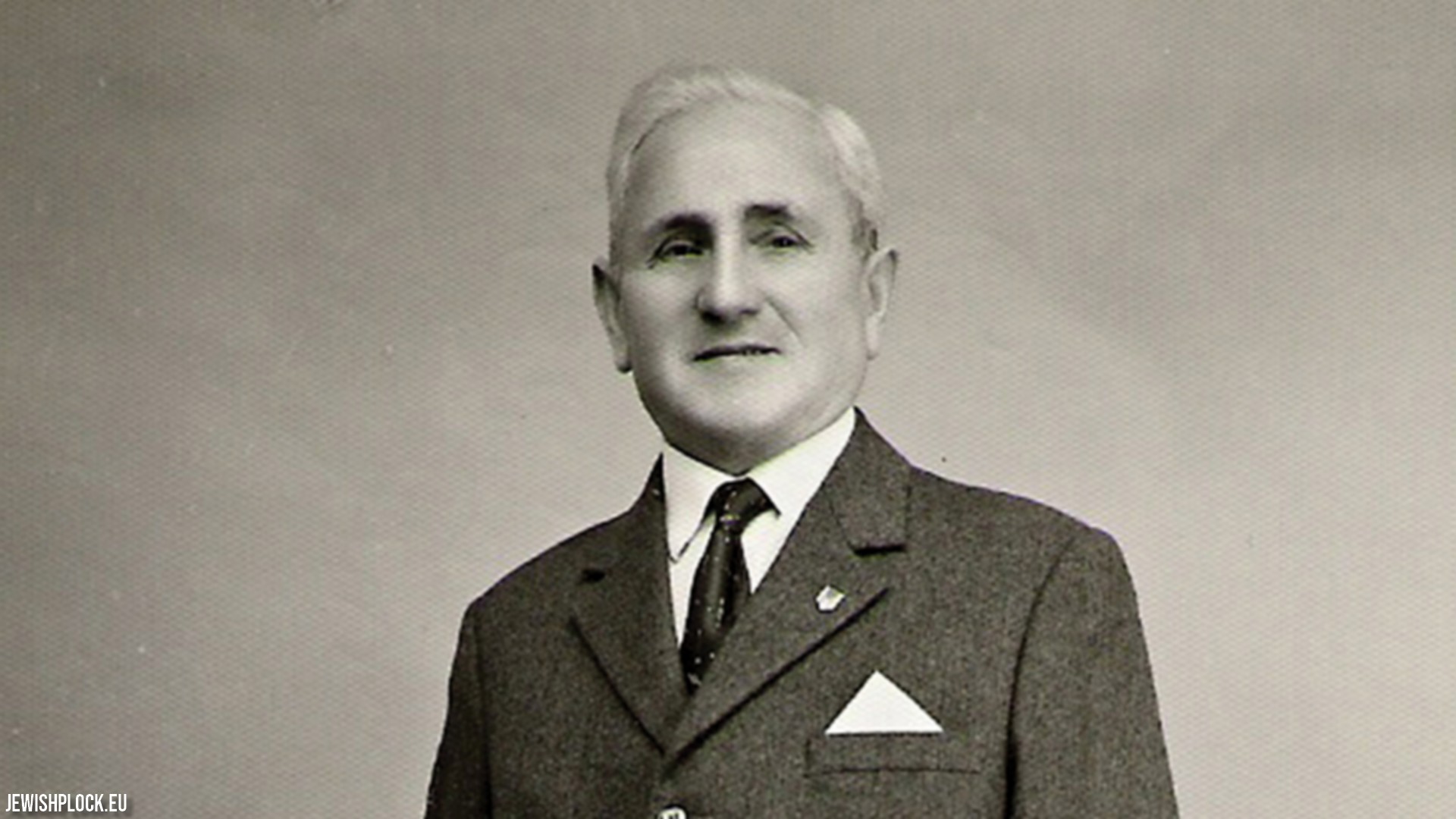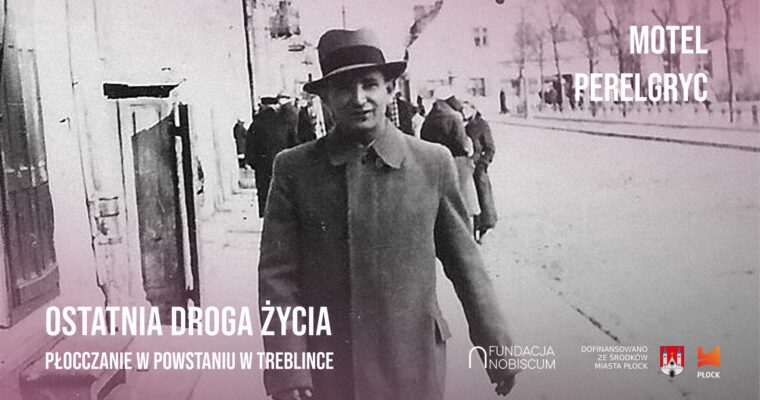On August 2, 2023, at the Cinema Around the Corner of the Franciszka and Stefan Themerson Center for Culture and Arts in Płock , the premiere of the film “The last path of their lives. People of Płock in the Uprising in Treblinka” took place. The film has been produced by the Nobiscum Foundation thanks to the co-financing of the City of Płock on the 80th anniversary of the revolt of prisoners of the German Nazi extermination camp Treblinka II.
The aim of the production is to present the Jewish people from Płock who participated in the uprising, including Marian Platkiewicz, Motel Perelgryc and Chaskiel Rozenberg. The script of the film was based on the memoirs of Marian Platkiewicz preserved in the collection of Yad Vashem, archival documents from the collections of the State Archives in Płock and the Registry Office in Płock, as well as family memorabilia – photographs made available to the foundation from the private collections of the families of Motel Perelgryc and Chaskiel Rozenberg. Guests of the film include, among others, representatives of the Memory of Treblinka Foundation, which collects and promotes knowledge about the camp, gathers accounts of witnesses and survivors, and publishes the names and surnames of people who were murdered in Treblinka (together with the Jewish Historical Institute, the foundation creates the so-called Book of Names).
The film was recorded in Płock, in locations related to the life of Jewish residents who were later prisoners of Treblinka during World War II and who took part in the uprising in the summer of 1943 (Marian Platkiewicz, Rudek Lubraniecki, Motel Perelgryc, Chaskiel Rozenberg) as well as on the grounds of the Treblinka Museum.
The film is now also available online, with Polish and English subtitles, on our channels:
on Facebook (link)
on Youtube (link)
on Vimeo (link)
